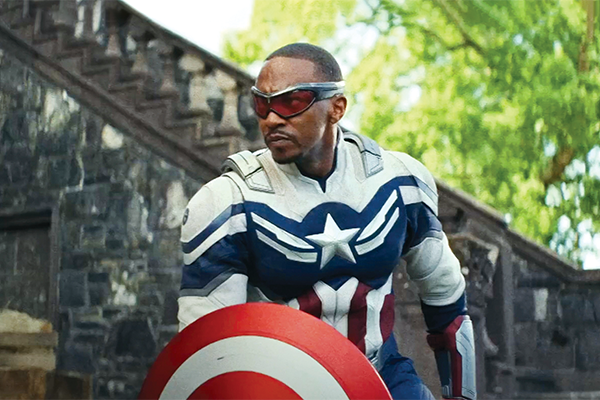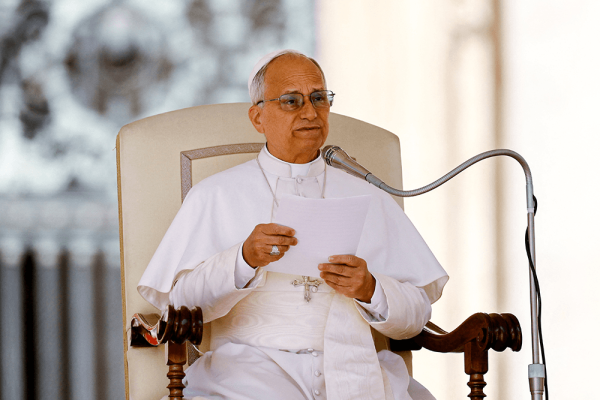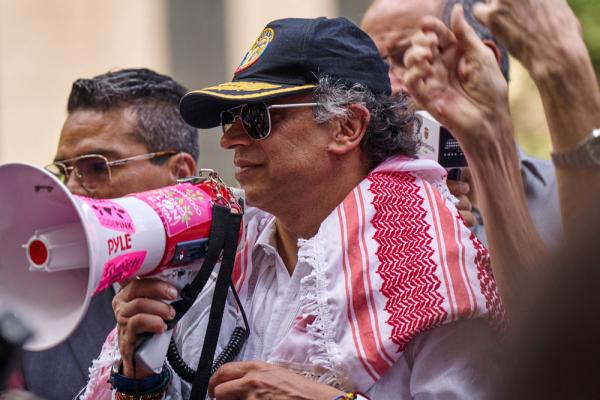THE CAPTAIN AMERICA series has always been a bright spot in the Marvel Cinematic Universe. Sure, they’re big blockbuster fun, but they’ve also been willing to do what political thrillers do best: Consider the questions of power. Previous entries have interrogated the perils of the surveillance state and the historic experimentation done on Black soldiers, political waters that few MCU projects have ventured into.
Which is why it’s such a shame that Captain America: Brave New World — hampered by reshoots, strikes, protests, and a tepid rollout amid Donald J. Trump’s reascendance to the presidency — offers only the veneer of substance.
When President Thaddeus “Thunderbolt” Ross (Harrison Ford) asks newly christened Captain America Sam Wilson (Anthony Mackie) to restart The Avengers, Wilson is apprehensive. Ross, a former military general, helped dismantle the team in Captain America: Civil War, imprisoning Wilson and other heroes. But when U.S. operatives attempt to assassinate Ross, Wilson must work with the increasingly untethered president to uncover who’s behind the plot.
A film about the tension between serving your country and serving your president, particularly in our current moment where paranoia and disunity reign, is rich with possibility. But instead of engaging these pertinent issues, the film seems to wave away concerns about the danger of political power, filling its runtime with clunky dialogue that alludes to complex ideas without engaging them, lest they reduce the film’s marketability.
The character of Captain America has always been, by virtue of his name, an attempt to reflect the best of the country. Chris Evans’ Steve Rogers represented the nation’s strength against fascism in World War II, later becoming a bastion of good ol’ fashioned values in a world turned upside down. Yet the new film seems unclear about just what it means to be an American and therefore extra unsure of what it means for Sam Wilson to become the first Black man to take up the mantle.
In one of the only references to race, Sam worries that failing to live up to his new title “[feels] like I’ve let down everyone who is fighting for a seat at that table.” Yet the film gives no space to unpack what this means, making Sam’s show of emotion read as almost self-inflicted.
The U.S.’s crisis of identity cannot be solved by hand-waving at high-minded ideals, nor will it come solely from interrogating America’s sins. It will start by offering Americans true ideals to aspire toward, ones as messy and complicated as the nation we inhabit. If our symbols are to hold any value at all, we must first imbue them with real meaning.

Got something to say about what you're reading? We value your feedback!







